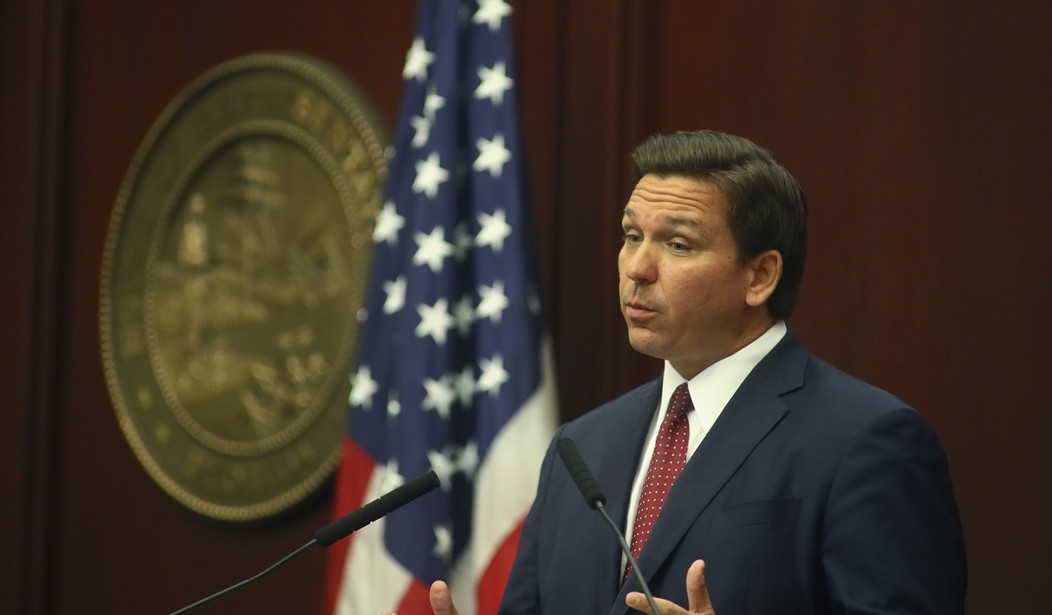The opinions expressed in guest op-eds are those of the writer and do not necessarily represent the views of RedState.com.
Republican lawmakers in the Florida Legislature acted quickly to leverage its supermajority in both chambers to curtail the influence of Big Labor over the state’s public sector workforce and its impact on municipal, county, and state government.
As the 2023 legislative session officially opened on March 7, GOP members of the Senate Oversight and Accountability committee quickly approved SB 256, dubbed the “Paycheck Protection Bill”.
That the measure received a hearing and was approved in the Senate committee is a significant improvement over last year’s attempt, where the Senate posed the main roadblock by refusing to even allow a committee hearing, killing the bill after it was overwhelmingly approved in the House.
The “Paycheck Protection Bill” includes language that would, among other things:
- prevent the state from deducting dues on behalf of unions from public employees’ paychecks, forcing unions to do their own billing and collections;
- require audits of unions representing public employees;
- require union membership cards to include wording echoing the U.S. Supreme Court’s 2018 ruling in Janus v. AFSCME, which recognized the right of public employees to decline union membership, dues, and fees with no loss of representation or benefits; and,
- perhaps most significantly, the bill establishes a new threshold and closes some unintended loopholes in a 2018 law that forces certification elections in situations where more than half of the bargaining unit has refused to support the union. These elections allow all employees who are represented by the union an opportunity to vote on whether the union will be allowed to continue representing them.
The bill exempts law enforcement and firefighter unions from the proposed changes.
Florida lawmakers have considered similar bills in the past without success, but the GOP currently holds decisive advantages in both the House and Senate.
Andrew Spar, president of the Florida Education Association, issued a statement characterizing the bill as “…an attack, pure and simple, on educators’ basic freedoms and rights.”
While Spar, Randi Weingarten, and other labor leaders often claim this and similar legislation are attacks on individual rights, they really see it as a threat to their union power – which is why they fight to prevent the individual from gaining more choice and flexibility in the workplace.
In fact, during Gov. DeSantis’ State of the State address delivered the same day the Senate heard the “Paycheck Protection Bill,” the governor proclaimed, “We must continue our momentum with K through 12 education by increasing teacher salaries, enacting a teachers’ bill of rights, providing paycheck protection for teachers, expanding school choice and fortifying parents’ rights. Our schools must deliver a good education, not a political indoctrination.”
Florida is taking steps to protect educators’ basic freedoms and rights, and restoring the rights of the parents – the reason the labor leaders are unhappy is because that power doesn’t flow through them.
The truth is that the law would do nothing to prevent state, county, and local workers from organizing and bargaining collectively for better wages, benefits, and working conditions, which is the only rightful role of unions. It would simply force unions and their leadership to be more transparent and accountable, which is only a problem if they have something to hide.
For generations, states without right-to-work protections could compel public employees to either become dues-paying union members or charge nonmembers a so-called “agency fee.” The Supreme Court, in Janus, affirmed that mandatory union participation violates the workers’ First Amendment rights to free speech and association, but the ruling has been difficult to enforce.
If public employees want to be in a union, this bill would do nothing to stop them. It just protects the rights of those who don’t and adds layers of accountability for all employees represented by the union, regardless of membership status.
“This is a bad bill,” Gretchen Robinson, a Florida Education Association member, told Orlando Weekly. “It’s a mean bill. It’s going to hurt families, and it’s going to hurt all educators’ families and especially it’s going to hurt working-class families.”
In fact, the only thing the bill could conceivably hurt is the continued viability of the FEA, which currently only has a 54 percent membership rate – a number that could easily drop even further once a safeguard is implemented to verify union membership data.
The bill is pro-worker because it makes it easier for state employees to do what’s in their best interest rather than what’s in the best interest of their union. Even better, it makes the state government accountable to the residents of Florida rather than a wholly owned subsidiary of Big Labor, the way it is in too many other states.
Rusty Brown is the Southern Director for the Freedom Foundation. www.FreedomFoundation.com












Join the conversation as a VIP Member